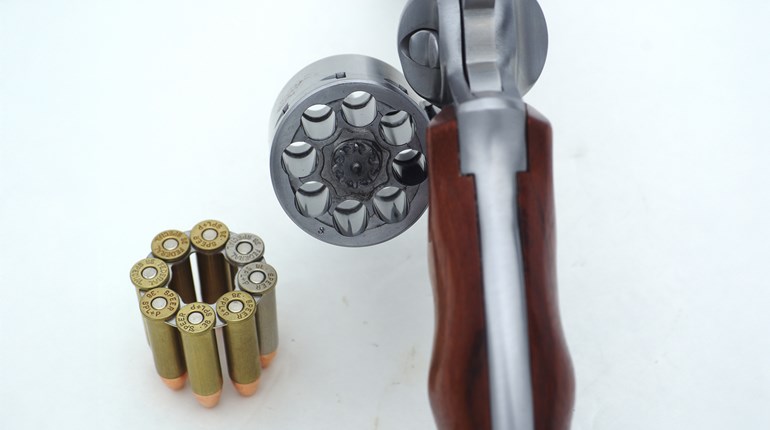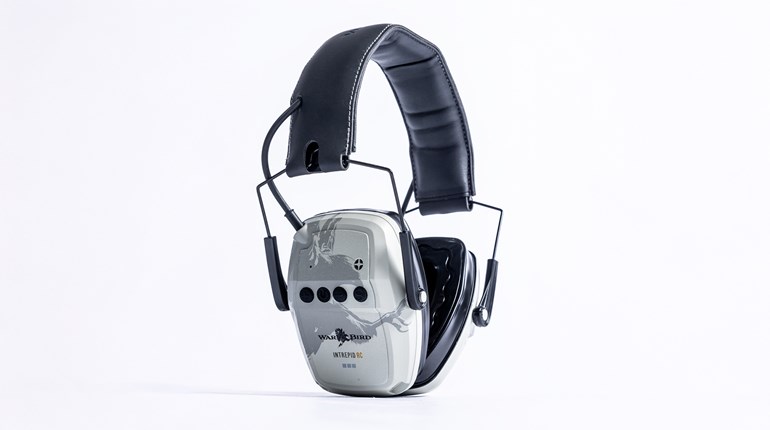
Our bodies are a complex combination of ever-changing physical, mental and emotional components. Some might add a “spiritual” component to that list as well. The point is that we are not robots, merely machines that can perform the same repetitive action over and over again without error.
Humans can certainly train themselves to do repetitive tasks well and, fortunately, we usually get more proficient at something the more we do it. But being human we experience both “good days” and “bad days,” with most of our time spent somewhere between those two extremes.
Competitive shooting is no exception. There are times when the targets seem as big as balloons and hitting them is nearly effortless. Then, the next time you step onto the range—your confidence sky high—the wheels fall off. As a buddy of mine puts it, “I couldn’t hit a bull in the butt with a snow shovel today.”
Someone who knows about these up and downs in human behavior and why they occasionally occur with shooters is Dr. Raymond Prior of Chicago. A sport psychology professional and performance consultant, he has worked with U. S. Olympic Team shooters, collegiate shooting teams and professional athletes in various sports internationally for more than a dozen years. Shooters make up about 10 to 15 percent of his clientele.
“My expertise is in understanding an individual’s psychological framework,” said Prior. “A psychological framework is how you organize your inner life—your beliefs, priorities, and values. It’s the way you see the world, the way you see yourself and the interaction between the two.”
Prior specializes in working with individual athletes. He sees his job as helping shooters understand themselves and their inner experience related to their performance. “But I never tell a shooter specifically what to think or what to do,” he added. “That’s their coach’s job.”
Slumps are a shooter’s self-created, self-fulfilling prophecy.
Prior says that many factors can lead to less-than-optimal performance; however, that doesn’t necessarily mean a shooter is in a slump.
“For instance,” Prior said, “if you’re a teenager and have grown six inches in the last six months, you are probably going to be less coordinated than you were before the growth spurt and you may perform worse for an extended period of time until your body catches up with itself. Or, maybe you are recovering from a physical injury, or possibly your family life is in disarray. Any of those issues and many more can lead to a temporary change in performance.”
Where actual slumps come from, Prior says, is like believing in the bogeyman.
“The bogeyman and slumps are the same thing. They don’t actually exist unless you create them in your mind. There is no scientific, objective evidence to suggest that slumps just happen. In other words, slumps are a shooter’s self-created, self-fulfilling prophecy.”
According to Prior, the most common challenge he encounters with clients who believe they are in a slump is their thinking about being in a slump.
“If you decide you’re in a slump, you then start to create a conditional relationship with your shooting, focused specifically on results. You say to yourself, ‘I have to shoot well today to get out of this slump!’ This moves your mind’s focus to the future rather than keeping it in the present. It’s a natural reaction, as the mind is trying to avoid an unwanted future outcome. But this approach tends to make you shoot hesitantly, tentatively and ‘safe’ instead of simply letting your body relax and perform, allowing it to do what you’ve trained it to do in a trusting mindset.”
Prior gives the example of a college baseball coach who sent him a young pitcher to work with named David. The coach said David was great on the mound during practices, striking out batter after batter by throwing four types of pitches, including a two-seam 97-mph fastball. But during games, David would fall apart.
In speaking with David, Prior learned that during games he was concerned with all the pro scouts in the stands watching him. He was feeling the pressure of having to perform well to impress the scouts and make it to the major leagues. As a result, he was “thinking” about his pitching instead of just hitting the catcher’s glove as his dad had taught him as a kid. When David made that mental adjustment—clearing his mind and simply hitting the glove—his game performance improved dramatically. He started having fun again. It was just like playing catch with his dad in the backyard. The coach later told Prior, “I don’t know what you said to that boy, but lately he’s been pitching out of his mind.”
Certain superstitions and rituals have even evolved as slump-busters, all worthless.
So how about you? When have you shot your best? If you’re like most shooters, it was probably during practice sessions, possibly alone or with just a few close friends. And you likely weren’t keeping score, rather, you were just shooting for fun. At those times your mind and body were relaxed and at ease, you were focused on the present act of simply hitting the target. What you were not thinking about was a future outcome, such as the result of a competition that would confirm or deny whether you were in a slump.
As a competitive shooter, Prior says it’s important to learn to emotionally detach from future “results” in order to be able to fully concentrate on each individual shot, regardless of its ultimate outcome. This strategy allows you to perform as well as possible on any given day, and over time provides the best chance to produce the change in your shooting you desire.
Interestingly, Prior went on to say that so-called slumps are part of the culture of some sports, baseball and sport shooting being two of the most prominent. Certain superstitions and rituals have even evolved as slump-busters, all worthless. In essence, it’s the changing of your mind—what and how you think about your shooting—that eventually changes your performance.
Lastly, when shooters believe they are in a slump they also tend to believe they are far from performing well, when in reality they’re only slightly off target. A simple slight adjustment or two will usually get you back on track, and that’s where trusting your coach is essential.
Remember, ultimately, it’s your thoughts about your performance that guide your performance—and that’s what makes champions.
If you’d like to learn more about the psychology of shooting and competition, Dr. Raymond Prior’s book, Bullseye Mind: Mental Toughness for Sport Shooting is highly recommended and available at www.rfpsport.com. Use the coupon code Chip to receive 15 percent off an order of any size through Thursday, Dec. 31, 2020.
See more: What is Mental Toughness?



































